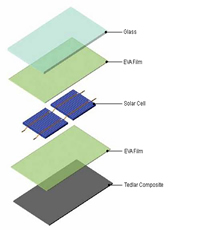Overview
Advantages
Chemically Inert
When “Solar” EVA film is melted under vacuum, it starts to flow freely to fill up all spaces inside photovoltaic solar panel.
Free Flow
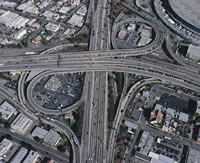
When “Solar” EVA film is melted under vacuum, it starts to flow freely to fill up all spaces inside photovoltaic solar panel.
Excellent Adhesion
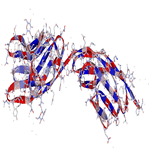
All composition materials, glass, solar cell and TPT, etc. are firmly encapsulated and bonded into one full body. This characteristic protects solar cells and hold them in place and thus, guarantee photovoltaic solar panel long lasting.
Super Transparency
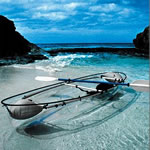
A piece of EVA film is encapsulated on top of solar cell. Light absorbed by solar cell passes through the EVA film. Transparency is one of the major concerns when encapsulated material is selected. “Solar” type EVA film is highly transparent. It maximizes light transmittance and thus, allowing highest power generation per square meter of photovoltaic panel.
Low Haze
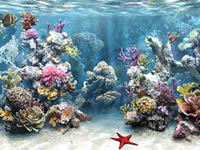
Haze is another standard similar, but different, to light transmission. “Solar” type EVA has lowest possible haze. It is crystal clear with the best transmission property.
Degradation Proof
EVA is originally thermoplastic. After melted and cure, it is transformed to a thermoset material which is resistant to degradation.
Durable

Photovoltaic solar panels are usually put in open areas without, of course, any cover. The panels shall overcome long term exposure of fiery sunlight, vigorous sand storm and heavy rainfall, etc. It has to resist also sudden temperature change when, for example, a violence of shower in the evening after a long day of sunshine. Thanks to the flexibility of EVA, the encapsulation performance is good enough to resist all kinds of climatic scenarios. It resists at the beginning and it keeps on until the panel is broken.
Resists Color Fade

Yellowish of EVA would reduce light transmission. “Solar” type EVA is absolutely color fading proof. This characteristic also prevents the film from deterioration.
